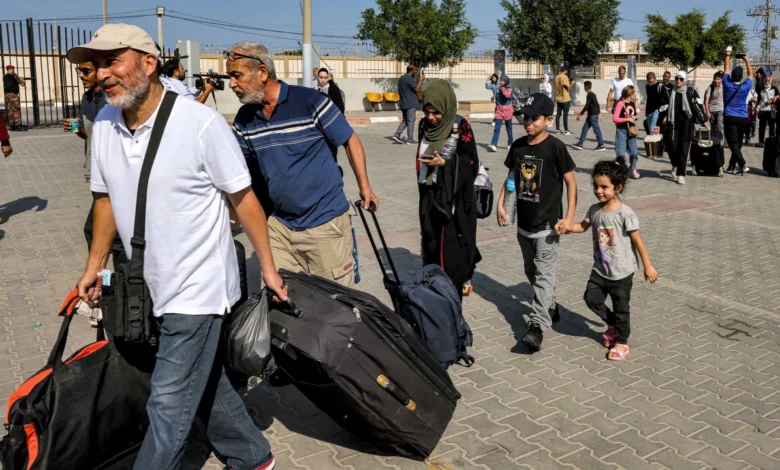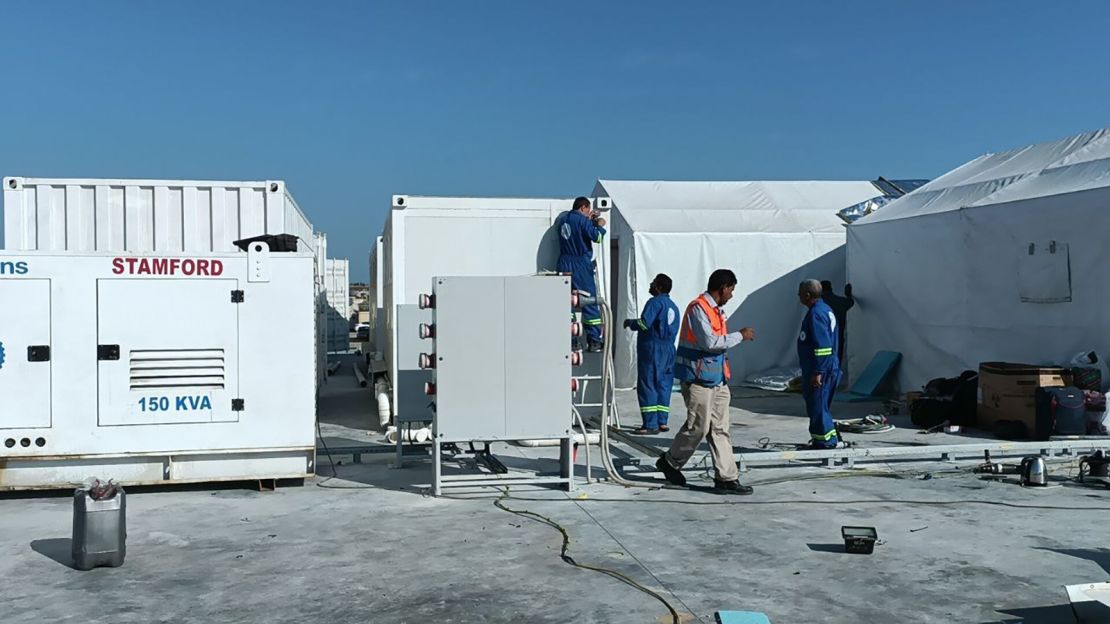
Eight-one severely injured Palestinians were expected to arrive in Egypt on Wednesday. A spokesperson for Egypt’s Ministry of Health told CNN “they are arriving one by one.”
Hundreds of foreign nationals were also waiting at the Rafah border crossing in Gaza on Wednesday morning, hoping to enter Egypt, after a deal was reportedly brokered to bring them out.
Three sources close to the matter have told CNN that up to 500 foreigners are expected to cross out of Gaza at Rafah, in what would be a significant breakthrough following weeks of strikes across the densely populated strip that have killed thousands and sparked a humanitarian crisis.
The injured Palestinians are the first non-hostages allowed out of the enclave since Israel’s latest war with Hamas began three weeks ago.
Their exit follows a deal brokered by Qatar between Israel, Hamas and Egypt, in coordination with the US, that would allow for the release of foreign nationals and critically injured civilians from Gaza, according to sources familiar with the talks.
The agreement is separate from any hostage negotiations, the source added.
A Western official confirmed that Americans were not expected to be among the first batch exiting Wednesday. It was unclear exactly what day they would be allowed to leave, according to the official.
According to internal US government correspondence obtained by CNN, US citizens are expected to begin departing Gaza as soon as Thursday.
Footage from the scene showed a throng of ambulances at the Gaza side of the crossing, while images showed families waiting at the border with suitcases.
A number of officials from foreign consulates are also standing by on the Egyptian side of the crossing, an Egyptian border official told CNN at the crossing.
No timeline has been set on when they will begin moving, but British Foreign Secretary James Cleverly said Wednesday that “the Rafah crossing is likely to open today for a first group of foreign nationals.”
In a post on social media, Cleverly said that “UK teams are ready to assist British nationals as soon as they are able to leave.”
A Palestinian border official, Hisham Adwan, told CNN that 500 people were waiting to cross.

On Wednesday morning, some 80 Egyptian ambulances entered Gaza’s Rafah border crossing to receive the injured Palestinian patients, an Egyptian border official told CNN at the crossing.
CNN had previously reported that 81 “seriously injured” Palestinians from Gaza would be allowed to travel for treatment in Egypt.
The 81 patients were undergoing treatment in hospitals across Gaza, many of them needing surgical intervention that is not currently available there, the director of Al Shifa Hospital, Dr Mohammed Abu Silmiyeh, told CNN. Once discharged from the hospitals in Gaza, they will complete their treatments in a field hospital in Egypt’s Sheikh Zuweid city, he added.
More than two million people, half of them children, have been stranded inside the war-torn strip since Hamas’ deadly October 7 terror attack prompted Israel to close its borders with Gaza and launch an aerial campaign targeting the militant group that controls the enclave.
Among those stranded are hundreds of foreign and dual nationals.
The Israel Defense Forces (IDF) expanded its ground operations in Gaza on Friday, making the situation for civilians and foreign nationals who remain trapped in Gaza even more dangerous amid a marked increase in bombardments and fighting.
Negotiators have been working for weeks to evacuate foreign nationals out of Gaza, and allay Egypt’s concerns about refugees entering the country through the Rafah crossing in southwestern Gaza.
Located in Egypt’s north Sinai, the Rafah crossing is the sole border crossing between Gaza and Egypt. It falls along an 8-mile (12.8-kilometer) fence that separates Gaza from the Sinai desert.
With both border crossings between Gaza and Israel shut since Hamas’ deadly October 7 terror attacks, Rafah is the territory’s only entry point to the outside world.
But the crossing has been closed except for a few occasions when it opened to allow a limited amount of aid into Gaza.
This is a developing story and is being updated.
CNN’s Alex Hardie, Ibrahim Dahman, Melissa Bell and Chris Liakos contributed reporting.




